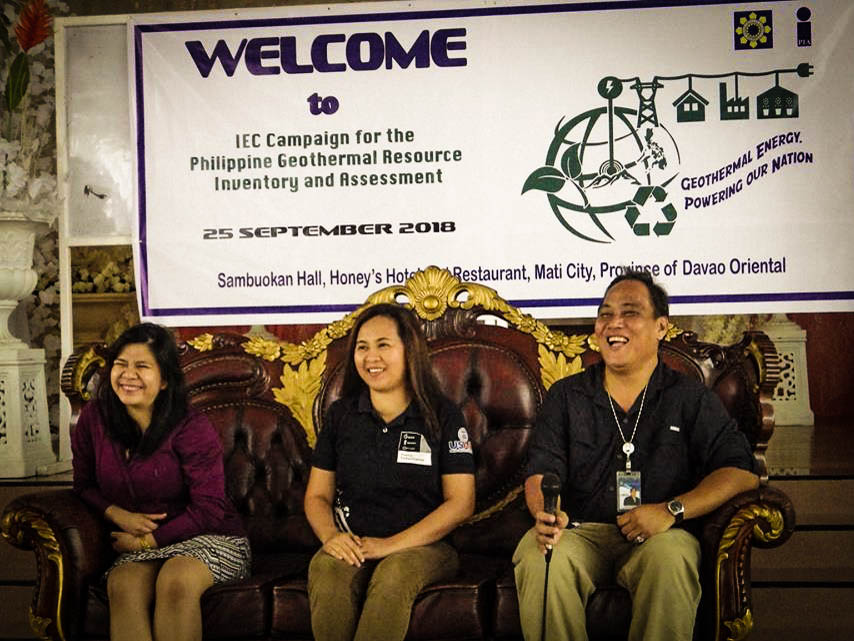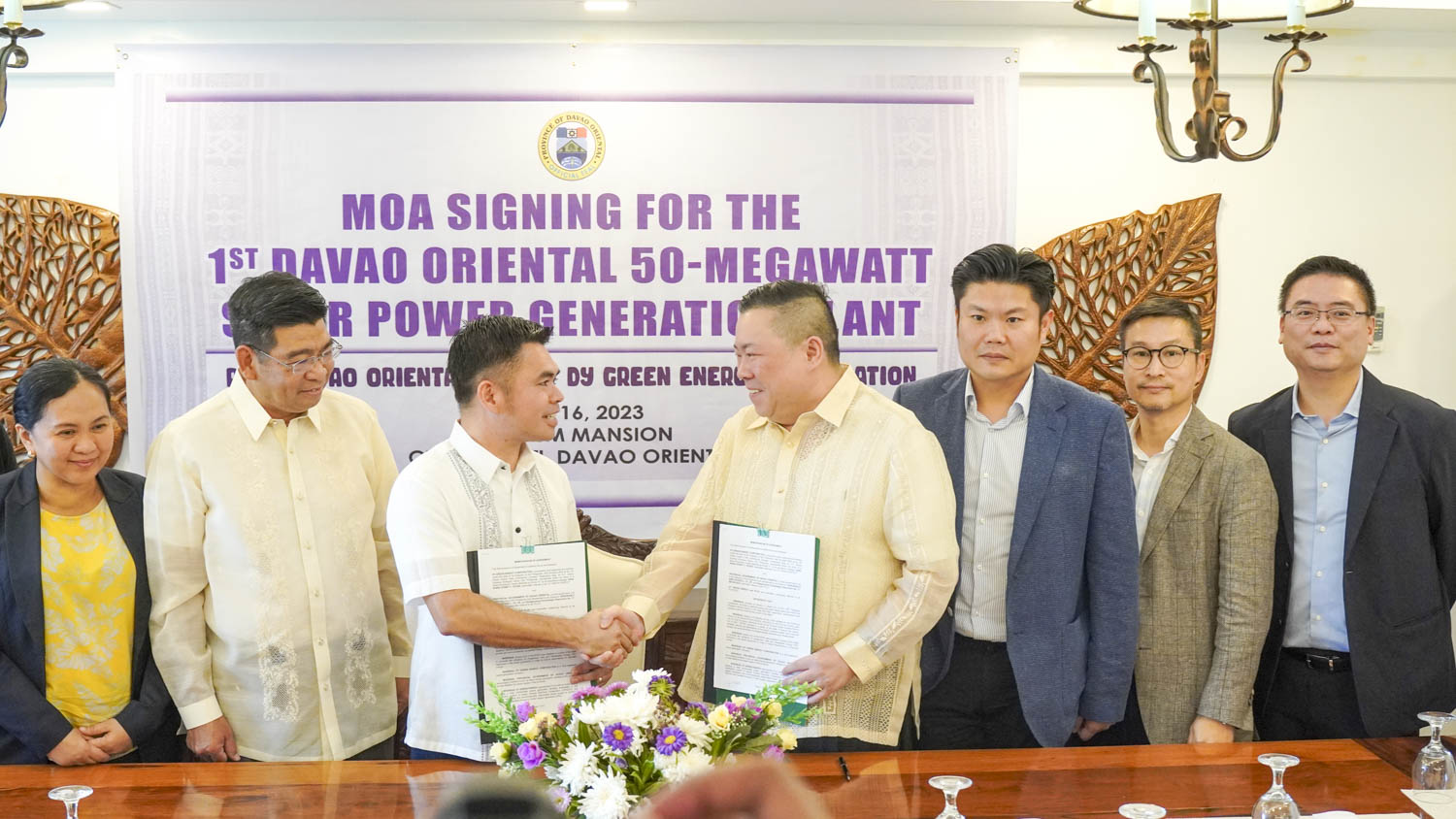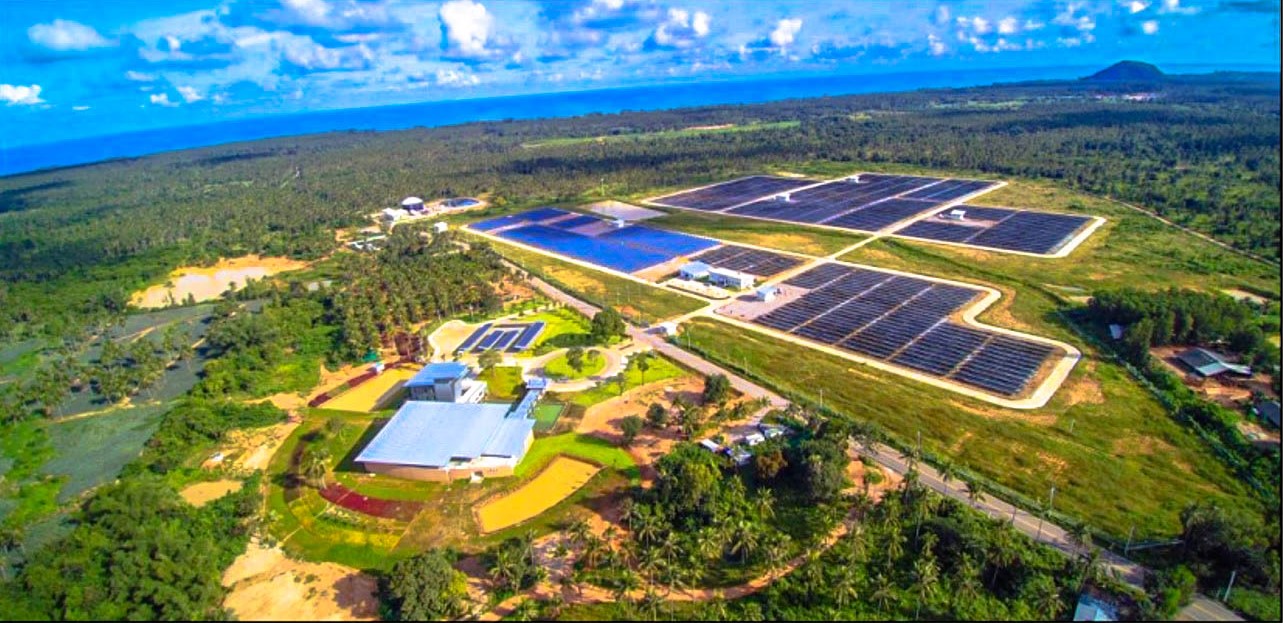DAVAO ORIENTAL – In the effort of finding more efficient and sustainable energy source that would power the country’s ever-growing households and industries, the Department of Energy (DOE) is pursuing studies and surveys on some areas potential for geothermal energy.
During the Information, Education, and Communication Campaign for the Philippine Geothermal Resources Inventory and Assessment Project, resource persons from the DOE said that there are six potential areas in the Philippines for the geothermal energy, including Davao Oriental, which the DOE now plans to assess.
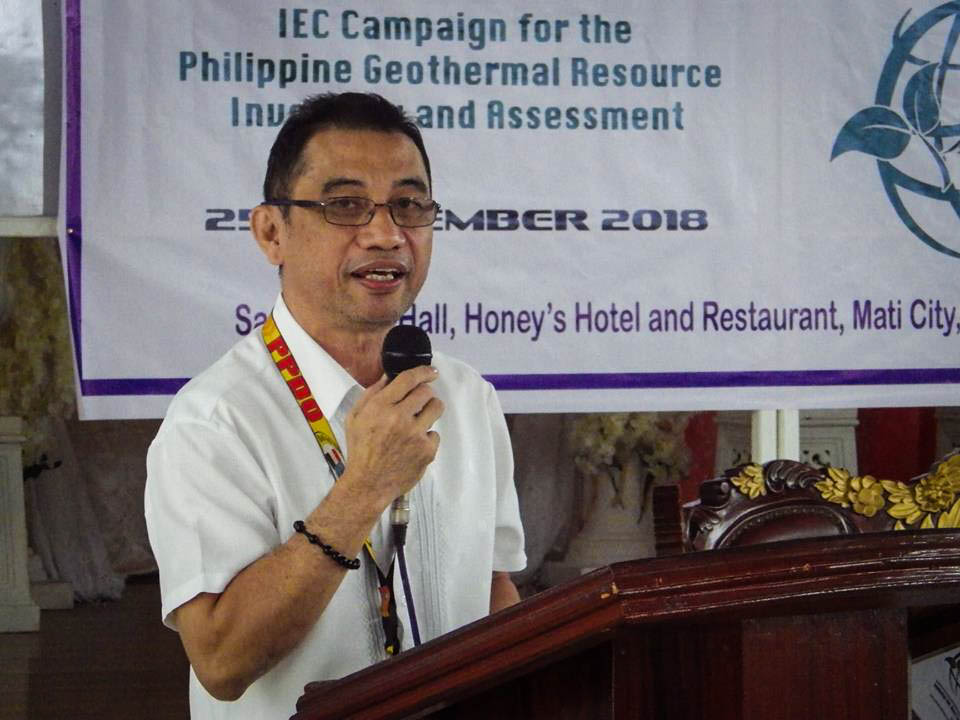
In Davao Oriental, the areas considered for assessment are the villages of Cabagayan in Tarragona town, Don Mariano Marcos in Lupon town and Buso in the City of Mati.
According to Joel Miguel, Science Research Specialist II, their team consisting of specialist are now gearing to determine Davao Oriental’s potentials for geothermal energy on the said villages. Another purpose of the study, he added, will also be to update geothermal database and identify areas for geothermal development.
Miguel underscored the importance of the IEC campaign in urging local government officials to support the project as they will tap the communities to assist them during the assessment and exploration.
The assessment which has already started in some areas last
January 2017 is expected to be completed on the year 2021. The assessment will
undergo three phases, namely geological survey, geophysical survey, and
geochemical survey, explained Kristine Louise Alvarez,
Science Research Specialist II.
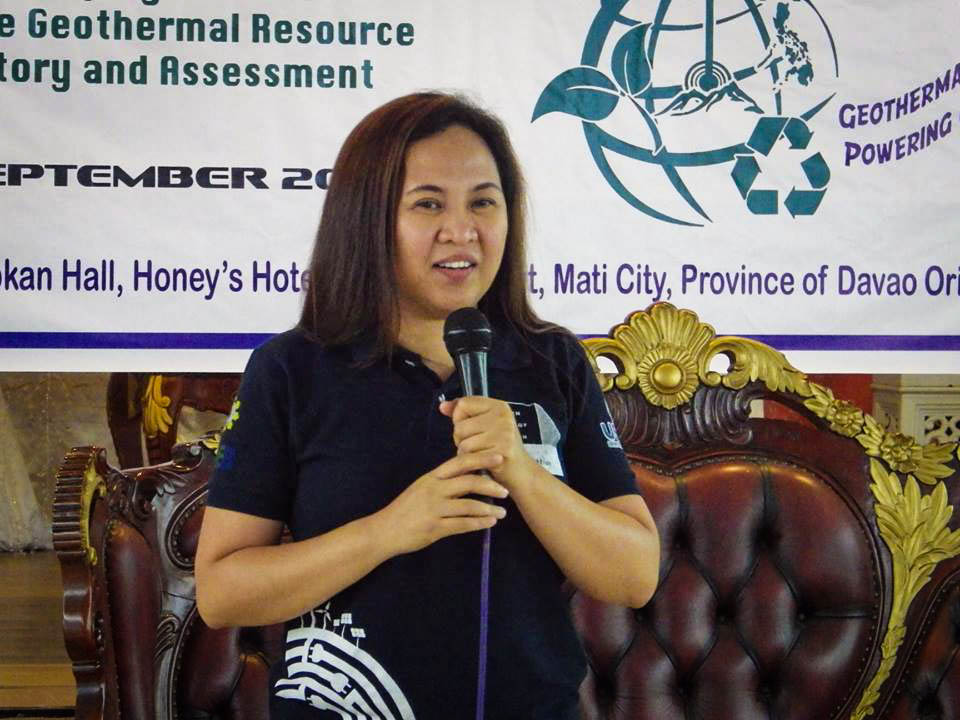
Upon completion of the study, the DOE will furnish the LGUs the results as well as its recommendations for the LGUs.
Atty. Marissa Cerezo, Assistant Director of the Renewable Energy Management Bureau of the DOE assured the public that geothermal exploration is completely safe, especially with modern technology. She also dispels claims that geothermal exploration may trigger earthquakes. “There is no scientific basis for that,” she said, describing that digging the ground is just like a scratch under the earth. “Epicenters of earthquakes are hundreds of kilometers below,” she said, adding that the deepest that humans have ever dug from the surface of the earth is only about 2 kilometers.
Powering the Future
Geothermal energy has many advantages. Aside from it being a clean, renewable and sustainable source of energy, tapping this unlimited source of energy is a way to go amidst the increasing demand for energy.
Geothermal energy abounds in the Philippines which has the third largest “installed capacity” in the world. However, she said that if the areas of study turn out not feasible for power generation, these sources can be tapped for myriad of other potential uses such as for agriculture and tourism, among others. She said geothermal energy has endless potentials wherein LGUs can benefit.
Atty. Cerezo expounds on the environmental benefits of the geothermal energy. She said that should geothermal power plants be established; developers and the communities will be even more compelled to plant trees on the surrounding watersheds as geothermal energy needs water to produce steam in order to propel and drives the turbines of a power plant.
Governor Nelson Dayanghirang, in a message delivered for him by his representative Freddie Bendulo, the Provincial Planning and Development Coordinator, said this geothermal energy study is welcome development for the province.
He said that with Davao Oriental abounding in natural resources and potentials for renewable energy, the province will hopefully contribute in providing solution to power generation for the growth of industries and businesses.

